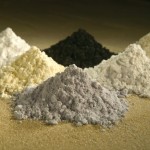The question of whether or not governments should be running companies has been a subject of debate for centuries. There are strong arguments to be made on both sides of the issue.
Recent News
The government is evaluating the necessity of MMTC, STC, and PEC, which were previously responsible for overseeing various imports and exports. Possible actions include removal from NCLT, demerger, selective asset sales, or other agreements with lenders. This aligns with the government's scrutiny of Central Public Sector Enterprises' (CPSEs') investments, focusing on preventing them from engaging in unrelated or loss-making activities at the state level.
| Well-Run Government Company Singapore Post: Singapore Post is a government-owned postal service company in Singapore. It is one of the most efficient and profitable postal services in the world. Singapore Post has a strong track record of innovation and has been able to adapt to the changing needs of its customers. |
MMTC, classified as a Miniratna Central Public Sector Undertaking, specializes in facilitating foreign trade. STC, a government-owned international trading company. The government, holding approximately 90% stakes in both MMTC and STC, is contemplating their closure, with Union Commerce Minister Piyush Goyal leading discussions.
Examples of Indian Government Companies Doing Well
It is important to note that this is not an exhaustive list, and there are many other examples of Indian government companies that are doing well and badly. The performance of Indian government companies varies depending on a number of factors, including the industry in which they operate, the level of competition they face, and the management of the company.
| Badly-Run Government Company Petrobras: Petrobras is a state-owned oil and gas company in Brazil. It is one of the largest oil companies in the world. Petrobras has been involved in a number of corruption scandals in recent years, and its financial performance has suffered. |
Table of contents [Show]
ONGC
Oil and Natural Gas Corporation Ltd. (ONGC) is the largest state-owned enterprise in India. It is a multinational corporation engaged in crude oil and natural gas exploration and production. ONGC has a strong track record of profitability and has been consistently ranked among the top 10 most profitable companies in India.
GAIL
GAIL (India) Limited is a state-owned natural gas company in India. It is responsible for the transmission and marketing of natural gas in India. GAIL has a strong network of pipelines and gas infrastructure, and it is a major player in the Indian natural gas market.
| Well-Run Government Company Saudi Aramco: Saudi Aramco is a state-owned oil and gas company in Saudi Arabia. It is the largest oil company in the world by production and reserves. Saudi Aramco has a strong track record of financial performance and is a major contributor to the Saudi Arabian economy. |
NTPC
NTPC Limited is a state-owned power generation company in India. It is the largest power producer in India and is responsible for about 30% of India's electricity generation. NTPC has a strong track record of financial performance and is a major contributor to India's economic growth.
Coal India
Coal India Limited is a state-owned coal mining company in India. It is the world's largest coal producer and accounts for about 80% of India's coal production. Coal India is a major contributor to India's energy security and economic growth.
| Badly-Run Government Company Petrotrin: Petrotrin is a state-owned oil and gas company in Trinidad and Tobago. It is the largest oil and gas company in Trinidad and Tobago. Petrotrin has been a major financial burden on the Trinidad and Tobago government in recent years, and it has been forced to borrow money from the government to stay afloat. |
Indian Railways
Indian Railways is a state-owned railway company in India. It is Asia's largest railway network and the second largest in the world. Indian Railways plays a vital role in India's transportation sector and is a major contributor to India's economic development.
Examples of Indian government companies doing badly:
BSNL
Bharat Sanchar Nigam Limited (BSNL) is a state-owned telecommunications company in India. It is India's largest telecom operator by number of subscribers. However, BSNL has been struggling to compete with private telecom operators in recent years, and it has been incurring losses.
| Well-Run Government Company Hydro-Québec: Hydro-Québec is a state-owned hydroelectric power company in Quebec, Canada. It is the largest hydroelectric power producer in North America. Hydro-Québec has a strong track record of environmental sustainability and is a major source of clean energy for Quebec. |
Air India
Air India was a state-owned airline in India, and has now been taken over by the Tata Group. It was once a major airline in Asia, but it was struggling in recent years. Air India has been incurring losses for many years, and it had been forced to rely on government bailouts to stay afloat. Hopefully, it will see better days under Tata group management.
HMT
Hindustan Machine Tools Limited (HMT) is a state-owned machine tools company in India. It was once a major manufacturer of machine tools in India, but it has been struggling in recent years. HMT has been incurring losses for many years.
| Badly-Run Government Company South African Airways (SAA): South African Airways (SAA) is a state-owned airline in South Africa. It is the largest airline in South Africa. SAA has been struggling in recent years, and it has been incurring losses. The South African government has been forced to bail out SAA on a number of occasions. |
Hindustan Antibiotics Limited (HAL)
Hindustan Antibiotics Limited (HAL) is a state-owned pharmaceutical company in India. It was once a major producer of antibiotics in India, but it has been struggling in recent years. It has been incurring losses for many years.
Heavy Engineering Corporation (HEC)
Heavy Engineering Corporation (HEC) is a state-owned engineering and construction company in India. It was once a major manufacturer of boilers and other heavy machinery in India, but it has been struggling in recent years. HEC has been incurring losses for many years.
| Well-Run Government Company Poste Italiane: Poste Italiane is a state-owned postal service company in Italy. It is one of the largest postal services in Europe. Poste Italiane has a strong track record of innovation and has been able to diversify its business into other areas, such as banking and financial services. |
Arguments in Favor of Government Involvement in Business
Proponents of government involvement in business argue that the government has a role to play in ensuring that the economy operates efficiently and fairly. They argue that the government can provide essential services, such as electricity, transportation, and healthcare, at a lower cost and higher quality than private companies. They also argue that the government can regulate industries to protect consumers and prevent monopolies. Additionally, they point out that the government can provide a safety net for the poor and the unemployed.
Arguments Against Government Involvement in Business
Opponents of government involvement in business argue that the government is inefficient and wasteful. They argue that private companies are better at managing resources and producing goods and services. They also argue that government involvement in business can lead to cronyism and corruption. Additionally, they argue that the government can stifle innovation and entrepreneurship.

| Badly-Run Government Company Pakistan International Airlines (PIA): Pakistan International Airlines (PIA) is a state-owned airline in Pakistan. It is the largest airline in Pakistan. PIA has been struggling in recent years, and it has been incurring losses. The Pakistani government has been forced to bail out PIA on a number of occasions. |
The Role of Government in Business in Different Countries
The role of government in business varies from country to country. In some countries, such as Norway and Sweden, the government owns a significant share of the economy. In other countries, such as the United States and the United Kingdom, the government's role in the economy is much smaller. Singapore Airlines, a government-owned airline, is widely considered to be one of the best airlines in the world.
The Future of Government Involvement in Business
It is difficult to predict what the future holds for government involvement in business. However, it is clear that the role of government in the economy is likely to remain a subject of debate for many years to come.
| Well-Run Government Company Korea Gas Corporation (KOGAS): Korea Gas Corporation (KOGAS) is a state-owned natural gas company in South Korea. It is the largest importer of natural gas in South Korea. KOGAS has a strong track record of financial performance and is a major contributor to the South Korean economy. |
Additional Considerations
In addition to the arguments presented above, there are a number of other factors to consider when evaluating the role of government in business. These factors include the specific industry in question, the level of economic development of the country, and the political climate.
It is also important to note that the role of government in business is not always static. Over time, governments may become more or less involved in the economy depending on a variety of factors.
| Badly-Run Government Company Venezuela's PDVSA: Venezuela's PDVSA is a state-owned oil and gas company in Venezuela. It is the largest oil and gas company in Venezuela. PDVSA has been struggling in recent years, and its production has declined sharply. The Venezuelan government has been forced to borrow money from China to stay afloat. |
Conclusion
Ultimately, the question of whether or not governments should be running companies is a complex one with no easy answers. There are strong arguments to be made on both sides of the issue, and the best approach may vary depending on the specific circumstances.








